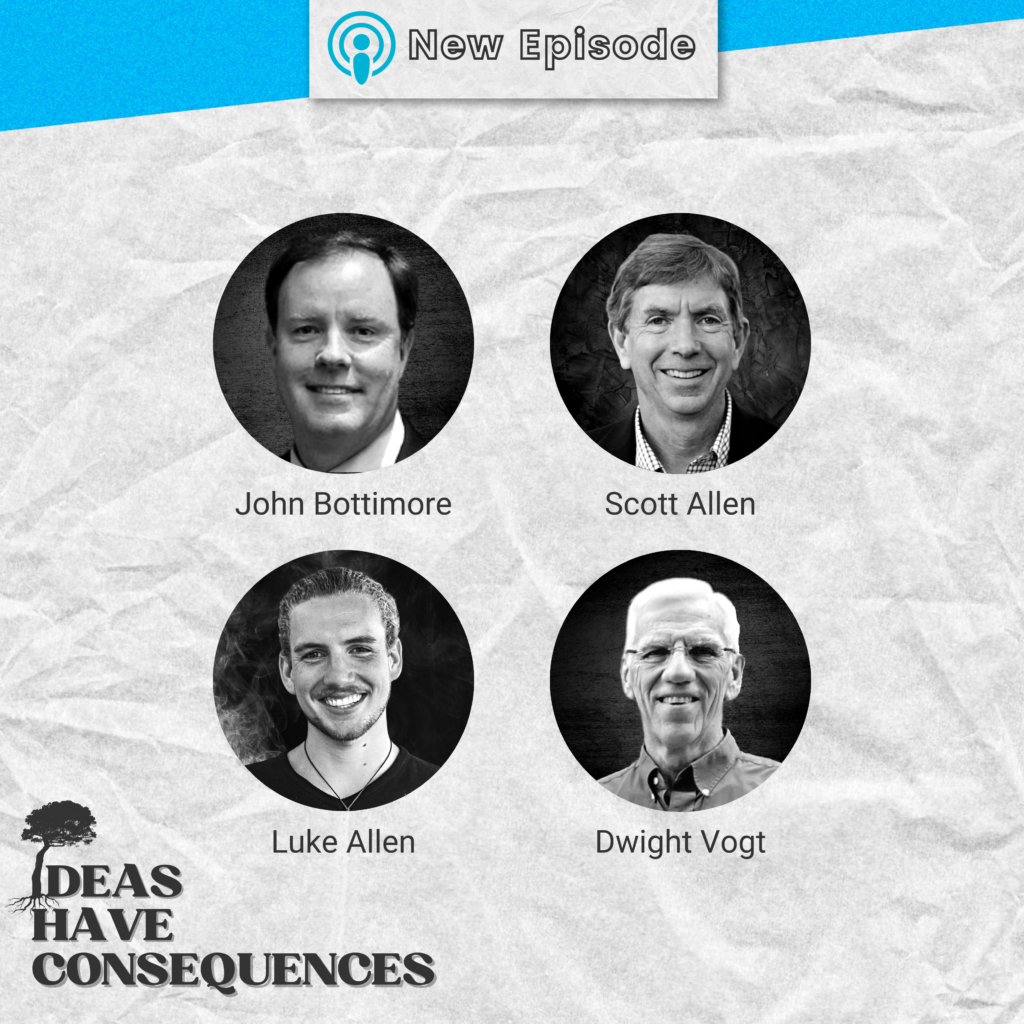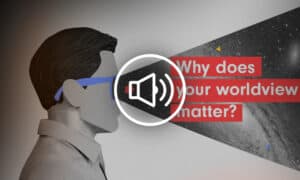At a Glance
New Year’s resolutions are becoming increasingly unpopular. A new fatalism is rising in the West. It tells people they are victims of powerful, oppressive systems and structures that are stacked against them, and there is little they can do to change. For people trapped in this mindset, setting goals is a pointless exercise.
As followers of Jesus, we acknowledge the reality of oppression in our fallen world, and that some people truly face greater challenges and disadvantages than others. But we also acknowledge that God has given all people personal agency, discipline, the ability, and means to improve with the help of God and others. Join us as we unpack these competing worldviews and reflect on our own New Year’s resolutions for 2023.
What You'll Hear
Chapter 1: How a Decrease in New Year’s Resolutions Reveal Worldview (1:16)
- New Year’s Resolutions are losing popularity. What worldview perspective would contribute to this?
- The “woke” worldview that much of the world embraces devalues human choice and freedom, viewing us not as people who can change, but simply as advanced animals that cannot truly make choices.
- In the victimhood mentality that cultural Marxism pushes, people are oppressed by institutional forces that they cannot change, so trying to better themselves or get ahead is useless and naive. In fact, trying to make a change or improve is seen as wrong.
Chapter 2: How Body Positivity Reveals Worldview (20:00)
- The Body Positivity movement is based off the idea that no one can set an objective standard and that we shouldn’t judge each other, even if the person is doing harmful things to themselves.
- The Body Positivity movement is based on a small amount of truth, that we should not shame people for their body shape, but it distorts it into celebrating and encouraging obesity, which is a known major health risk.
- This issue also appears in things like the War on Merit, where it became a bad thing to award people based on their academic abilities because if you perform worse it’s because of things beyond your control and if you perform better it’s because of privilege you didn’t earn.
- Ben Carson is an example of an underprivileged black man who was born to a poor single mother, yet overcame those challenges to become a world-famous neurosurgeon.
Chapter 3: The Power of Human Agency (35:59)
- We are created in God’s image, which means we have the power of agency.
- Agency is the ability to make changes to who we are and our circumstances.
- God gave us free will, both to change the circumstances in our lives but also to choose to follow and honor him or reject him.
- Humanity was created with agency, but after the Fall our agency became distorted.
- God works through our agency to make beautiful things.
Chapter 4: How Does Change Happen? (50:35)
- God, in contrast to the current cultural worldview, doesn’t let us just sit back and claim victimhood, but calls us to change and empowers us to make those changes.
- Without his help, our agency would be powerless, but because of him, true change is possible.
- God doesn’t just act directly, he gives us support like communities and family to help us change.
- Change is often hard and slow, but it is possible, both on a personal scale and on a societal and even global scale.
- The institution of chattel slavery was brought down by people like William Wilberforce, who spent his whole life fighting to end slavery in Britain. He failed many times, but eventually, with the support of God and other’s, ended the slave trade in Britain, which eventually led to the fall of chattel slavery all over the world.
Using the link above, you can read the transcript, listen along, and adjust the speed of the podcast while you listen.
And so it's the idea that if the church isn't discipling the nation, these ideas that aren't Christian are going to come into the church, into our theology, in our thinking.
Scott Allen (36:19)

The Kingdomizer Training Program
A Kingdomizer advances the truth, goodness, and beauty of God’s Kingdom in the world in which they live. The Kingdomizer Training Program is a series of online courses designed to equip you to live out Christ’s truth and redemptive love in transforming ways.
The Kingdomizer Training Program teaches you a true, Biblical Worldview and how to use that worldview to impact others. We suggest checking out specifically the Irreducible Minimum lesson, as it touches on some of the ideas discussed in this podcast.
Irreducible Minimum Discipline of Love Application Plan
The Irreducible Minimum Discipline of Love Application Plan is a worksheet intended to help you find ways to serve your community in a way that honors God.
Christian love isn’t just a feeling, but a choice that requires discipline and planning. The plan gives you specific ways to think about serving and loving your family, church, and wider community.
Quotes
So oppressive things are evil, and to be a victim of that oppression is to be good, actually. There’s a kind of a justification or a moral virtue now associated with it. -Scott Allen (12:26)
They’ve kind of gotten rid of these assessments, because some people do worse than others. And the fact that some people do worse on these is no fault of their own. It’s just that they are oppressed in some way that causes that. And those that do well have unearned privileges. And so we have to get away from any idea of merit. -Scott Allen (28:25)
I can almost argue that’s the supreme gift God has given us. I mean, he’s given us a soul so we can actually relate to him as a spirit, because we have spirit. So maybe that’s the supreme gift. But the second would be this agency–this ability that God not just demonstrated in creation (and then his running of the world), but then he gave it to us. And we have this amazing agency. And now we’re squandering it and we’re diminishing it, and we’re despising it. -Dwight Vogt (36:48)
It really is the story of the Bible. If you read the Bible from A to Z, it’s people making decisions. It starts with God saying, you have one decision to make, eat from the tree of good and evil or not eat from it. -Dwight Vogt (37:37)



